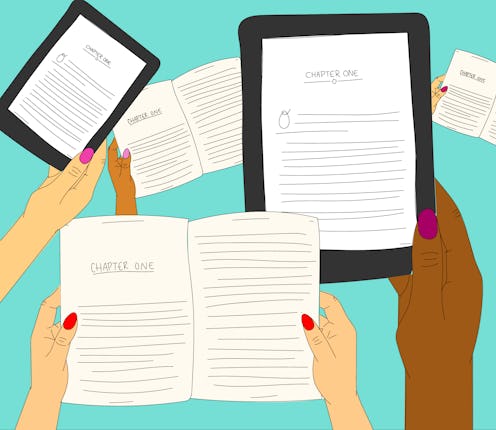Books
Is Self-Publishing Good For Women?

There has been an increased focus in recent years on sexism in publishing, but there seems to be one corner of the publishing world where women are doing quite well for themselves. According to an investigation by self-publishing platform FicShelf, self-publishing is helping women break the publishing glass ceiling and have the kind of success that tends to skew very male in the world of traditional publishing. So that's encouraging.
In order to arrive at this conclusion, FicShelf looked at the most popular novels on various self-publishing platforms, including Blurb, Wattpad, CreateSpace and Smashwords. They did not include books self-published on Amazon since Amazon does not create separate bestseller lists for their self-published titles, which makes it hard to say for sure how significant FicShelf's findings are, given Amazon's prominence in the field of self-publishing. Still, the platform remains convinced the trend they've identified would most likely apply to Amazon, as well. And the trend is this: successful self-publishers are more likely to be women.
According to FicShelf, 67 percent of top-ranking self-published titles were written by women, versus only 39 percent of the top traditionally published titles. In other words, traditional publishing favors male authors, but with self-publishing, women are able to build success for themselves.
In a way, this isn't surprising. After all, sexism has been around for a long time and is pretty well entrenched in just about any cultural institution you can think of — as well as entrenched in most people's attitudes and worldview to some degree or other. It's for this reason that online spaces are so awesome. They provide opportunity for people to create new communities and new modes of production and distribution which are — if not entirely free of sexism — at least don't have to deal with an institution's sexism internal apparatus. It's thus unsurprising that traditionally marginalized people like women, LGBT people, and/or people of color would turn to online spaces as outlets for their creative efforts.
While this is awesome, it's worth pointing out that self-publishing still isn't a fair fix for sexism in traditional publishing. Not only is sexism wrong on principle (duh) and harmful wherever it exists (double duh), but it's also significantly harder for self-published authors to build a successful career. I know that might seem counterintuitive to anyone who's tried to get a book published the old fashioned way, but the truth is that while publishing houses are selective, they also tend to handle things like editors and copy editors to make your book as good as possible, and marketing and promotional dollars to help get the word out. Self-published authors have to take on all that work on their own, and to compete with the thousands upon thousands of other self-published novels on the market. It is no coincidence that most self-published novels do not make much money.
Given all of this, it seems pretty clear that women are still disadvantaged, and that having a self-publishing industry that is more likely to reward female authors doesn't really make up for devaluing or shutting out female authors in the traditional publishing world. So clearly we have a long way to go. But in the meantime, it's lovely to see all the successful ladies who have bypassed the gatekeepers and created literary careers for themselves — and shaking up the publishing industry in the process.
Images: Caroline Wurtzel/Bustle; Giphy